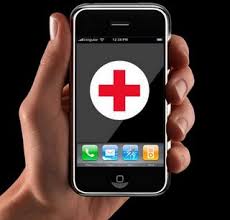February 28th, 2011 by EvanFalchukJD in Health Policy, Opinion, True Stories
No Comments »

 Media reports on misdiagnosis continue to mount. A recent study on patients with Alzheimer’s found that half had been misdiagnosed. Half.
Media reports on misdiagnosis continue to mount. A recent study on patients with Alzheimer’s found that half had been misdiagnosed. Half.
Another headline blared “4 out of 10 patients being misdiagnosed.” The article encouraged patients to “see another doctor” if they are worried about their diagnosis.
You know what it makes me think about? Starbucks. Why? Because the way Starbucks revolutionized coffee drinking shows a way forward for healthcare.
Starbucks realized that since our lives focus on two places — home and work — most of us don’t have a “third place” to go. A place where we can be free of everyday distractions and take care of ourselves. Starbucks set out to create that “third place” by making its shops comfortable, inviting places. It works. “Third place” makes customers’ lives better — and Starbucks has almost 20,000 shops to prove it.
It’s time for a kind of “third place” in healthcare. Healthcare focuses on two places, too: The doctor’s office and the hospital. Both places are difficult for patients. Patients complain of not getting enough time from their overworked doctors, and studies of things that go wrong in hospitals are equally disturbing.
There really isn’t a “third place” to go to in healthcare. Somewhere that you can step outside of the difficult process of being sick. Somewhere you can get a quiet, clear perspective of what is going on.
Now, some people are lucky and can turn to relatives or friends who are doctors to provide some of that “third place” experience. But most people can’t. At Best Doctors, we’re creating the experience of a healthcare “third place.” We do it by taking the time to review each case, have doctors think about what’s happening, consult with experts, and share advice. Read more »
*This blog post was originally published at See First Blog*
February 28th, 2011 by Michael Kirsch, M.D. in Health Policy, Opinion
1 Comment »

Many folks criticize pharmaceutical companies for providing physicians’ offices with free drug samples. They claim that this giveaway harms consumers because drug companies must raise their prices to cover the costs of these freebies. Of course, this is undeniable. Any business expense, such as payroll or advertising, has to be covered and is expectedly borne by the consumer. If a company chooses not to advertise, outsources manufacturing to a country with cheaper labor, offers limited benefits to its employees, then they can sell their product at a low price. In this hypothetical example, anemic sales may doom the company quickly.
Naturally, free samples are not really free. The rest of us pay for them. While this is true, I don’t think it is evil. Unlike the U.S. government, at least drug companies are covering their costs and not simply borrowing money every year to meet budget. Interesting concept.
Two of the community hospitals I work at have undergone transformations. One is owned by the dominant health care behemoth in Cleveland and has just completed a near $200 million renovation and expansion. The other smaller hospital is one of the few remaining Cleveland area hospitals that are still independent. I’d like to sneak there at night and hoist up a “Live Free or Die” flag up the flagpole, to delebrate its independent streak, but I’m sure that there are video cameras everywhere and that I would be in violation of several bylaws. The apt punishment might be that I would have to spend a cold Cleveland night chainedto the flagpole reading electronic medical record manuals out loud. Read more »
*This blog post was originally published at MD Whistleblower*
February 28th, 2011 by DrCharles in Opinion, Research
No Comments »

 After the computer known as Watson easily dispatched of the best two human Jeopardy! contestants in history, IBM announced that one of the first applications of their artificial intelligence technology would be in the medical field. We should soon expect virtual physician assistants in the exam room. At least one of my friends even speculated that the days of human doctors are numbered.
After the computer known as Watson easily dispatched of the best two human Jeopardy! contestants in history, IBM announced that one of the first applications of their artificial intelligence technology would be in the medical field. We should soon expect virtual physician assistants in the exam room. At least one of my friends even speculated that the days of human doctors are numbered.
Is it possible that machines will replace humans in the doctor-patient relationship? I doubt it. According to a study done by the Mayo Clinic in 2006, the most important characteristics patients feel a good doctor must possess are entirely human. According to the study, the ideal physician is confident, empathetic, humane, personal, forthright, respectful, and thorough. Watson may have proved his cognitive superiority, but can a computer ever be taught these human attributes needed to negotiate through patient fear, anxiety, and confusion? Could such a computer ever come across as sincere?
I’m afraid some major calibrations might be needed to substitute artificial intelligence for an “ideal” physician. What do you think? Here’s an artist’s conception (read: farce) of how such an application in the examining room might play out. Click HERE to watch the medical cartoon.
*This blog post was originally published at The Examining Room of Dr. Charles*
February 28th, 2011 by DrWes in Health Policy, News
No Comments »

While I know it grabs the eye, it really didn’t matter what the article was about. The headline says it all: Doctors are the problem, not the system, right?

-WesMusings of a cardiologist and cardiac electrophysiologist.
*This blog post was originally published at Dr. Wes*
February 27th, 2011 by Bryan Vartabedian, M.D. in Better Health Network, Opinion
No Comments »

 This is something. Jay Parkinson on the Future Well blog has suggested that health apps are overrated. Then on Twitter came a remark that the post represented “fightin’ words.” While I think the tweet was in jest, I’m sure there are some who will take offense to the less-than-flattering remarks about our coveted health apps.
This is something. Jay Parkinson on the Future Well blog has suggested that health apps are overrated. Then on Twitter came a remark that the post represented “fightin’ words.” While I think the tweet was in jest, I’m sure there are some who will take offense to the less-than-flattering remarks about our coveted health apps.
We love the concept of health apps for what they represent more than for what they really offer us. We want to feel that we’ve got it all in the palm of our hand. After all, technology might do for us what we won’t do for ourselves.
Like Jay I’m underwhelmed, but I don’t think that’ll always be the case. The post’s criticism should start a conversation about what’s real in mobile health and what isn’t. Even the fantasy of Health 2.0 has been questioned, and that’s a good thing. This dialog about reality versus rainbows and unicorns needs to continue.
Youngme Moon in Different: Escaping the Competitive Herd wrote, “The way to keep criticism from devolving into cynicism is to make it a starting point rather than a punctuation mark.” Jay Parkinson’s post is a starting point.
*This blog post was originally published at 33 Charts*
Media reports on misdiagnosis continue to mount. A recent study on patients with Alzheimer’s found that half had been misdiagnosed. Half.

















